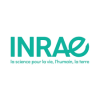R&D program
TraDéVi
Vineyard dieback trajectories
Keywords : Dieback, systemic approach, vulnerability, diagnostic indicators, dendrochronology
The TraDeVi project takes a systemic and transversal approach to vineyard dieback, on the scale of the vine, block of vines and entire vineyard. It aims to identify the biotic, abiotic and technical factors which contribute to the weakening of the vine and vine dieback.
By adapting dendrochronology to the vine, growth trajectories will be reconstructed and the project will seek to identify the events that may have favoured or triggered the phenomenon of dieback. The project will enable the characterisation of the ecophysiological processes (water and carbon statuses), the soil’s structure and biological condition, and the effects of the multitude of pests which can weaken the vine. In this way, indicators of the plant’s health or physiological state will be established, as well as indicators of the soil’s physical or biological condition. These will be used for making diagnoses on vineyards, where technical, organisational and economic factors will also be considered.
Modelling will be used as a tool for integrating and disseminating the scientific knowledge and expertise relating to dieback.
Partners
Led by Christian Gary of the INRA UMR SYSTEM in Montpellier, seven other UMR of the INRA are participating in the project: LISAH, MISTEA, Eco&Sols, LEPSE in Montpellier, SAVE in Bordeaux, EEF in Nancy, the Pech Rouge Experimental Unit, the IFV, and the Vaucluse and Aude Chambers of Agriculture. The Lycée Frédéric Bazille, Bordeaux Sciences Agro, the DGAI, the RMT Innovative Cultivation Systems, and the BNIC are associated with this project.
Actions
- Action 1 : Organisation, management and promotion of the project
- Action 2 : Study of the physical and biological factors that contribute to vine dieback on a short and long timescale.
- Action 3 : Trajectory of declining blocks of vines and technical management
- Action 4 : Modelling of syntheses of knowledge on dieback.
Programme
The project runs from October 2017 to December 2020.


